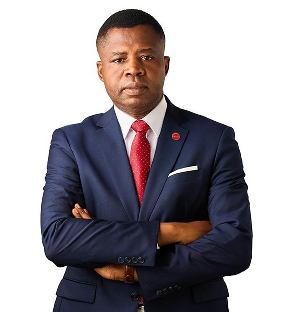There were sharp divisions on both sides of Parliament when Members of Parliament deliberated on the ‘controversial’ subject of child labour to commemorate the “World Day Against Child Labour” which fell yesterday.
Members from both sides virtually clashed on the definition of child labour as captured under the Children’s Act with opponents of child labour saying the government must stamp its authority in eradicating child labour from the Ghanaian society since it was very inimical to the total development of the child while dissenting MPs thought it was in the right direction for children to help their parents on the farm or any engagement that would help earn income for the family, if those children were not in school or on vacation.
The New Patriotic Party (NPP) Member of Parliament for Sekondi, Papa Owusu-Ankomah; NPP MP for Atwima Nwabiagya South, Anthony Osei-Boakye; National Democratic Congress (NDC) MP for Ada, Comfort Doyoe Cudjoe Ghansah; NPP MP for Abuakwa North, J.B. Danquah Adu and NDC MP for Amenfi Central, George Kofi Arthur asked that children under 15 be protected from harzadous jobs which would not only put their health at great risk but also affect their safety and morals.
However, NDC MP for Pru East, Dr Kwabena Donkor; NDC MP for Amenfi West, John Gyetuah; NPP MP for Atwima Mponua, Isaac Asiamah; NPP MP for Bosomtwe, Simon Osei-Mensah and NPP for Tarkwa-Nsuaem, Gifty Kusi said child labour could not be completely done away with because children sometimes needed to help their parents in some ‘work’ in order to look after the family and that the Ghanaian cultural setting conveniently allowed that.
The deputy minister of Employment and Labour Relations, Antwi-Boasiako Sekyere, who read a statement in commemoration of the day on the floor of parliament said some worst forms of child labour were stone cracking/quarrying, illegal mining, commercial sex, drug trafficking, domestic servitude and ‘kakayei’ operations stressing that such works exposed the children to serious health hazards.
The deputy minister said this year’s celebration in Ghana would be celebrated on the theme “Ghana, Take Action Now, No To Child Labour in Domestic Work” and would be celebrated in all the districts across the country to elicit the commitment of all partners to collectively fight against child labour in the country.
He noted that certain NGOs were taking advantage of child labour situation in the country by portraying negative and undesirable images some in very distasteful manner to extort monies from international institutions that were sympathetic to their narrations.
“It has to take the collaborative efforts of the Ministry of Gender, Children and Social Protection and parliament to vigorously fight the menace of child labour”.
According to the MP for Sekondi, the law says that a person shall not engage a child in exploitative labour and that children under 18 years should not be found in harzadous work such as fishing, mining, quarrying, carrying of heavy loads, manufacturing companies where chemicals are produced, places where machines are used and places such as bars, hotels and places of entertainment where a person may be exposed to immoral behaviour.
He indicated that children who are sent to sell ‘iced water’ at lorry stations and along the streets are exposed to greater risk of being sexually abused or getting knocked down by a car and that parents should be advised to stop that ‘dangerous’ practice.
The MP for Amenfi Central, George Kofi Arthur, said children who abandoned school and engage in illegal mining or galamsey activities were subjected to all kinds of abuse, especially the females among them stressing that steps must be taken to prevent minors from engaging in galamsey activities.
The MP for Abuakwa South, J.B. Dankwa Adu said many children were forced to go into prostitution and that if one visited brothels, one would see children as young as 13 years engaging in prostitution with its attendant problems of early motherhood and sexually transmitted diseases.
The MP for Tarkwa-Nsuaem, Gifty Kusi, for her part, said global economic competition had affected labour and that companies had to use children in some cases to enable them produce more to meet global needs, adding that sometimes parents could not help but ask their children to work to support the family because of the prevailing economic situations.
Labour is said to be exploitative of child if it deprives the child of its health, education or development and that the minimum age for admission of a child to employment under the Children’s Act is 15 years and the minimum age for the engagement of a child in light work is 13 years.
General News of Friday, 14 June 2013
Source: dailyguideghana.com













